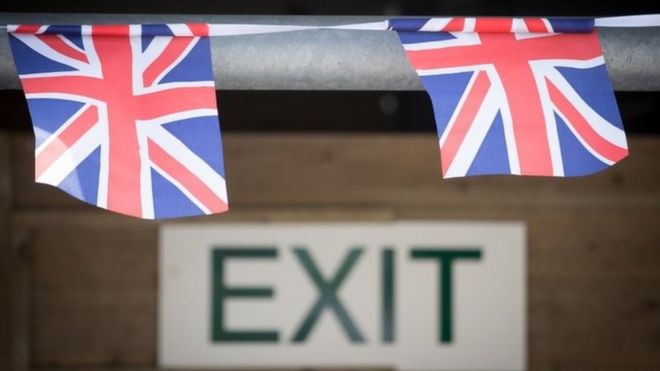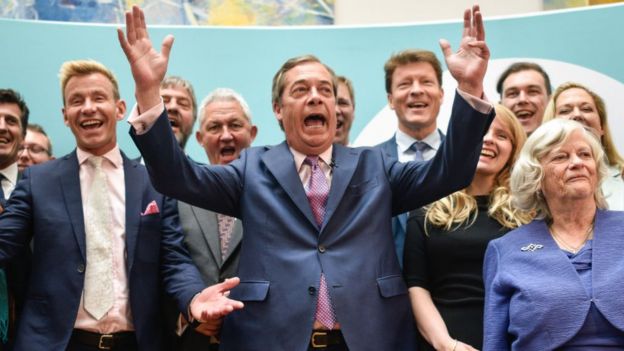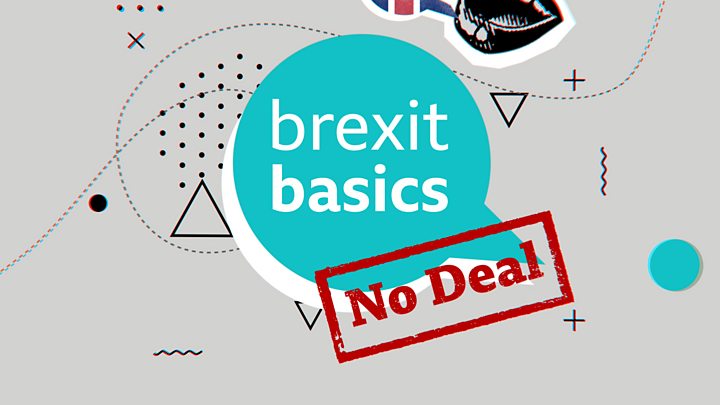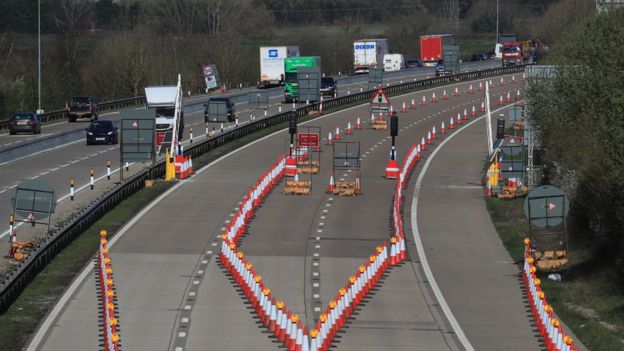 GETTY IMAGES
GETTY IMAGES
Although Boris Johnson has agreed a revised deal with the EU, the possibility of a no-deal Brexit has still not been ruled out.
What is a no-deal Brexit?
In a no-deal scenario, the UK would immediately leave the European Union (EU) with no agreement about the "divorce" process.
Overnight, the UK would leave the single market and customs union - arrangements designed to help trade between EU members by eliminating checks and tariffs (taxes on imports).
 GETTY IMAGES
GETTY IMAGES
No deal also means immediately leaving EU institutions such as the European Court of Justice and Europol, its law enforcement body.
Membership of dozens of EU bodies that govern rules on everything from medicines to trade marks would end.
And the UK would no longer contribute to the EU budget - currently about £9bn a year.
Under both former Prime Minister Theresa May's deal and successor Boris Johnson's deal there would be a transition period until the end of 2020.
This is to provide some breathing space, maintaining much of the status quo, while the two sides try to negotiate a trade deal.

How could no deal happen?
After Mrs May's deal was defeated, the Brexit deadline was extended to 31 October.
Mr Johnson has now agreed a revised deal with the EU. But it has not yet been passed by MPs.
To avoid a no-deal Brexit at the end of October, the UK government must pass the Brexit divorce plan into law, obtain another extension from the EU, or cancel Brexit.
Many politicians are against no deal and Parliament has passed a law - the so-called Benn Act - to try to keep the UK in the EU until the new year if no deal had been passed by MPs. But it is unclear if the EU would agree to any extension.
If there is no extension then either the deal and the implementing legislation must be passed, or there would be a no-deal Brexit on 31 October. The only other option would be to revoke Brexit.
Opponents of no deal say it would damage the economy and lead to border posts between Northern Ireland and the Republic.
But some politicians support no deal and say any disruption could be quickly overcome.
What would it mean for trade?
Under a no-deal Brexit, there would be no time to bring in a UK-EU trade deal.
Trade would initially have to be on terms set by the World Trade Organization (WTO), an agency with 162 member countries.
If this happens, tariffs - taxes on imports - will apply to most goods that UK businesses send to the EU. Many companies worry that could make their goods less competitive.
Trading on WTO terms would also mean border checks for goods, which could cause traffic bottlenecks at ports, such as Dover.
No deal would also mean the UK service industry would lose its guaranteed access to the EU single market.
That would affect everyone from bankers and lawyers to musicians and chefs.
 GETTY IMAGES
GETTY IMAGESWhat about the Irish border?
No-one really knows what will happen at the Irish border if there's a no-deal Brexit on 31 October.
In theory, border checks will be needed as soon as the UK leaves the single market and customs union.
However, neither the UK or Irish governments have said they are willing to install border posts.
What about the 'divorce bill'?
No-deal supporters say the UK could avoid paying the divorce settlement agreed by Theresa May's government.
That was widely believed to be about £39bn, although delays to the exit date mean some of it has already been paid and the latest estimates put it at about £33bn.
But opinion is split on what happens if the UK refuses to pay and there's a possibility the UK could end up in an international tribunal.
Even if there were no legal consequences, refusing to pay could mean political fallout - lessening the UK's chances of securing an EU trade deal in the future.
What does it mean for individuals?
Individuals could be affected in all sorts of ways.
For example, if the pound falls sharply in response to no deal and there are significant delays at ports, like Dover, it could affect the price and availability of some foods.
There are also concerns over potential shortages of medicines.
EU citizens in the UK can apply for settled status, allowing them to remain even if there is a no-deal.
UK expats in the EU are advised to register as residents of the country they live in, although no deal could make moving across borders more difficult.
Travelling with pets will become more complicated and expensive.
And European Health Insurance Cards (EHIC) would be invalid after a no-deal Brexit.
Are preparations under way?
Most economists and business groups believe no deal would lead to economic harm.
For example, the Office for Budget Responsibility - which provides independent analysis of the UK's public finances - believes a no-deal Brexit would cause a UK recession.
To cushion some of the impact, the government is looking at what might happen in a worst-case no-deal scenario. This includes:
- border delays
- increased immigration checks
- less food available
- possible price increases for utilities, food and fuel
 GARETH FULLER/PA
GARETH FULLER/PA
A week after taking office, Mr Johnson pledged an extra £2.1bn specifically to prepare for leaving the EU without a deal.
Prior to this, the government led by Mrs May had promised £4.2bn to prepare for a range of Brexit scenarios.
Businesses have been encouraged to prepare by stockpiling in case supplies are disrupted.
Supporters of no deal say some of the risks have been exaggerated and that previous warnings have proven unfounded.
https://www.bbc.com/news/uk-politics-48511379